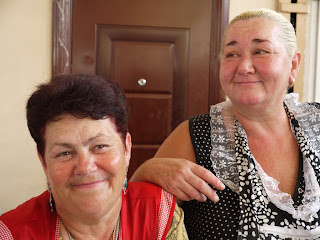
Like each of the cities we visited on our conversational tour of Ukraine, L’viv is its own place. The capital of historic Galicia, L’viv is regarded by many as the heart of Ukrainian culture, language and traditions. Crumbling and complex, the city is known for romance, poetry and intellectual enterprise.

In recent years, L’viv has also sought to distinguish itself as a gastro-destination. Long renowned for its caffeine haunts, there is now a cohort of small brewers, chocolate shops and gelato stands, cropping up around town, not to mention the batch of bizarre themed restos.
Our wonderful partner, the Centre for Cultural Management, an organisation that works to promote the cultural sector in L’viv and across Ukraine, hosted the event at the Ye Bookstore. And, so, we chatted, amongst the books, while browsing customers paused to listen or join in the dialogue.
Unsurprisingly, our discussions reflected L’viv’s unique character, charting a thoughtful progression from traditions to the future. We launched with stories about first tastes and childhood temptations. One participant remembered that, under the Soviet Regime of her youth, there were few luxury foods to be had. However there were the rare delights, including chewing gum and sodas (Pepsi NOT Coke) and, for Christmas, mandarin oranges. In my circle, we talked a great deal about Ukrainian food customs and dishes. What makes a meal Ukrainian, one asked. But, Galician food has been so influenced by Polish traditions, another commented. Is it still Ukrainian? What if you ate the same meal in Canada? (On a plane, on a train? In a box, with a fox?) We explored gender roles relative to food, who cooks and who grows, then, now, and into the future. The group of participants in the L'viv discussion was more diverse in age than in the other cities on the Community Conversation tour. Thus, the conversations were infused with an array of perspectives, reflecting the generational and cultural influences of the participants.

As talk of food often does, the discussions turned to politics and governance, and, inevitably in Ukraine, corruption. Contemplative participants offered exchanged opinions on regulations, taxes and food safety. We talked about the influence of Ukraine’s current leadership and the future of rural Ukraine. We talked about lifestyles, health and who tomorrow’s farmers will be. The lively exchange went on for a while, in that smart, meandering and, sometimes, wistful L’viv of way. And, then, we retired for beer and more of the same.
Watch a video and read peculiar news coverage about the L'viv event here.












































